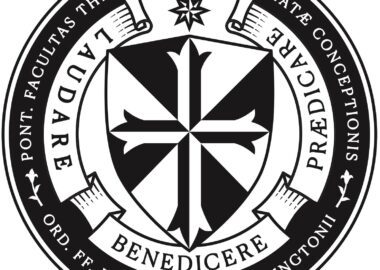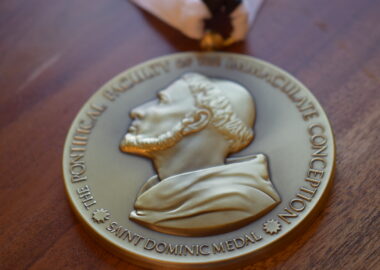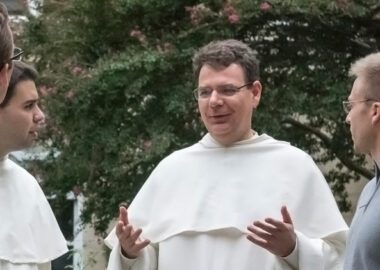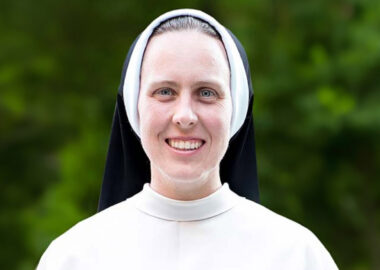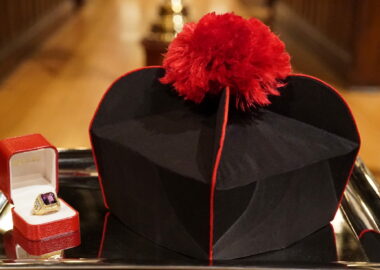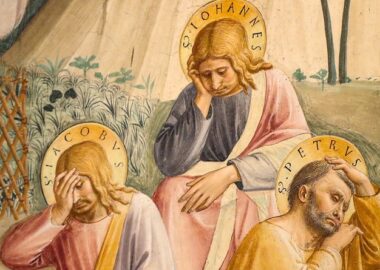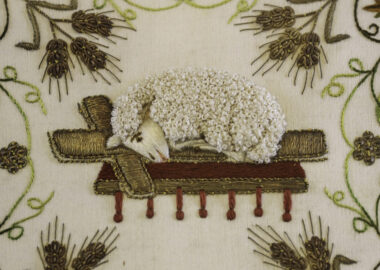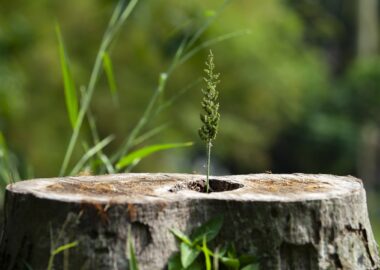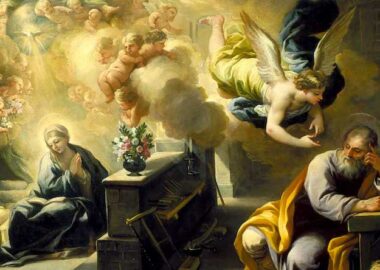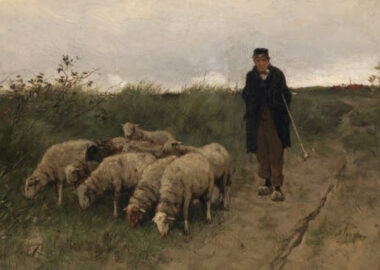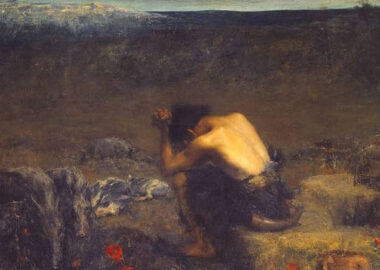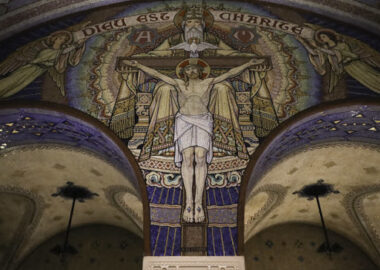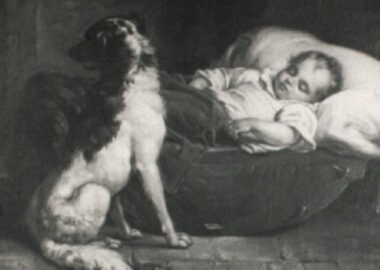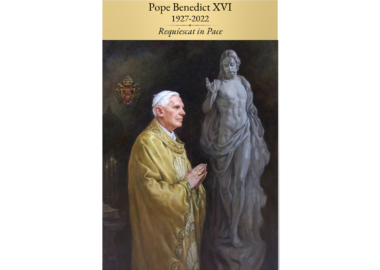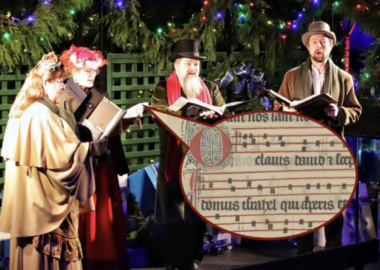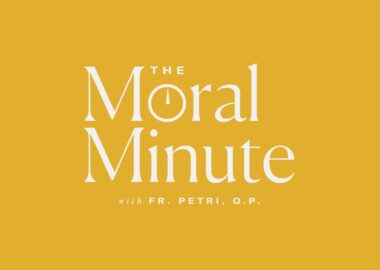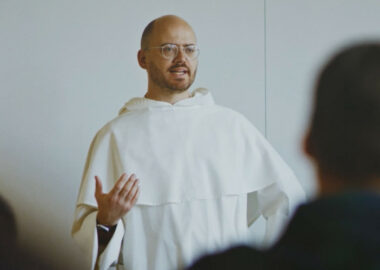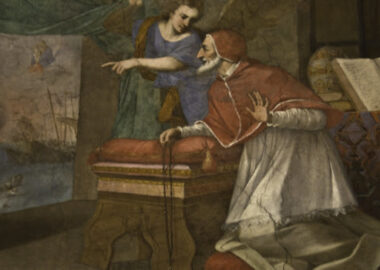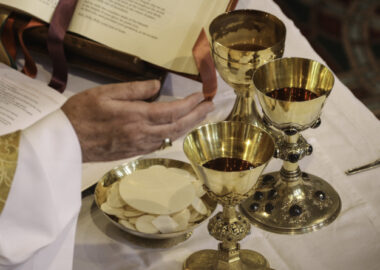
- Home
- Latest Content
- Unless Ye Become like Puppies
Unless Ye Become like Puppies
"Like loyal hounds, we should trust in God’s care of us, delight in following his will, and persevere in service to him, despite our distractions and worries."
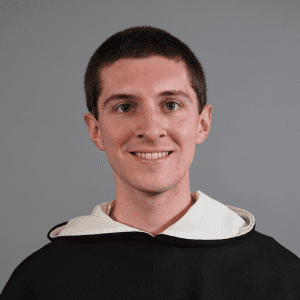
by
Br. John Henry Peters, O.P.
on
August 23, 2022
in
Dominicana
What if we are like puppies in the eyes of God? If we try reading Scripture—especially the Psalms—through a puppy lens, some remarkable parallels present themselves.
To begin with, God is our master who takes care of us. A puppy is purchased at a price, and thus belongs to its owner. So too, we have been purchased by God (1 Cor 6:20) and we belong to him (Ps 95:3). A puppy looks to its owner to feed it. The psalmist points our trusting gaze to God: “The eyes of all look hopefully to you; you give them their food in due season” (Ps 145:15). God, as the best master, provides for us in all our needs (Mt 6:25-33). A puppy simply wants to be with its master. The psalmist likewise wishes: “One thing I ask of the Lord; this I seek: to dwell in the Lord’s house all the days of my life” (Ps 27:4).
Furthermore, we are happiest when we follow God’s will for our lives. Anyone who’s raised puppies knows that dogs thrive best when they live in accord with their owner, being guided and cherished by him. The image of a faithful hound is one of the warmest images known to man. A puppy wants to be trained by its master. The psalmist asks God: “Lord, teach me the way of your statutes” (Ps 119:33). A puppy just wants to do his owner’s will, as does the psalmist: “I delight to do your will, my God” (Ps 40:9). A puppy is zealous for his master’s house. The psalmist vows to God: “Zeal for your house has consumed me” (Ps 69:10).
Like puppies, we can require a lot of practice to learn a lesson. We easily forget what God has taught us. The psalmist reminds God’s people: “They soon forgot all he had done; they had no patience for his plan” (Ps 106:13). A puppy easily becomes distracted by what others are doing. The psalmist admits: “I was envious of the arrogant when I saw the prosperity of the wicked” (Ps 73:3). Puppies can easily get tuckered out; we too can easily be exhausted by life. The psalmist laments: “My life is worn out by sorrow, and my years by sighing. My strength fails in my affliction” (Ps 31:11-12).
Finally, a puppy must learn how to be patient when it cannot see its owner. We too must be patient and not worry when God seems to be absent. The psalmist begs: “How long will you hide your face from me?” (Ps 13:2). A puppy quickly becomes distressed when its owner leaves, even for a moment. Worry can quickly overcome us when we lose the sense of God’s presence. We can trust, however, that God always watches over us (Ps 91). When a puppy sees its owner, it is overcome with excitement and delight. We should remember that we too are made for a moment of blissful vision, one far more wonderful, when we will see our Master as he is (1 Jn 3:2).
It seems that we can learn some lessons from Man’s Best Friend about how we ourselves can become friends of God (cf. Jn 15:15). Like loyal hounds, we should trust in God’s care of us, delight in following his will, and persevere in service to him, despite our distractions and worries. In this way, we can look forward to a bliss beyond even puppy joy, when, as good and faithful servants, we will share in our Master’s joy (Mt 25:21).
✠
Photo by Andrew Schultz
Originally published in the Dominicana Journal.
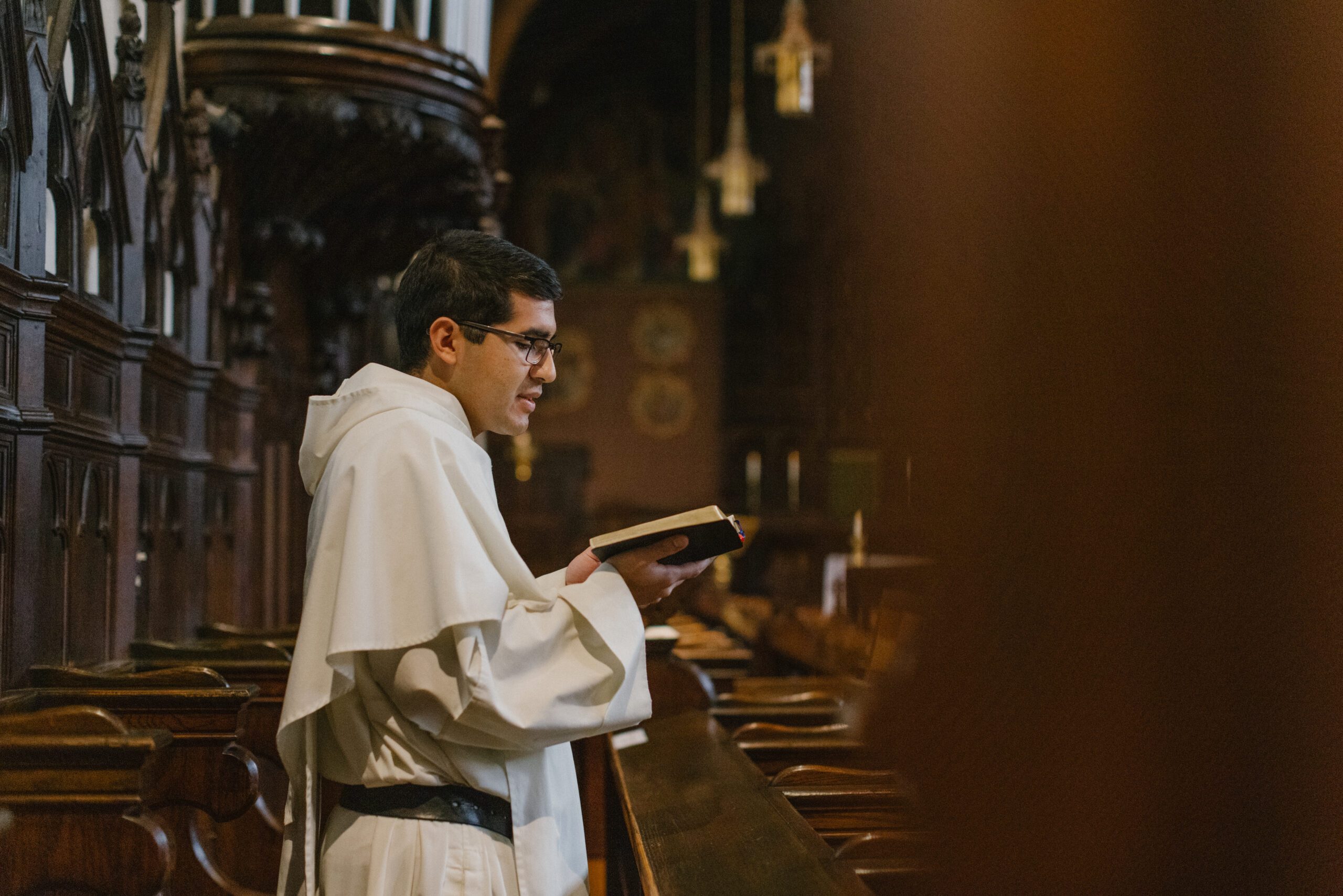
The Dominican House of Studies
Forming Preachers of Truth in Charity.
Catholic theology in the Thomistic tradition for Dominican students and all who are interested in serving the Church, evangelizing the world, and growing in virtue, wisdom, and holiness.
Give
